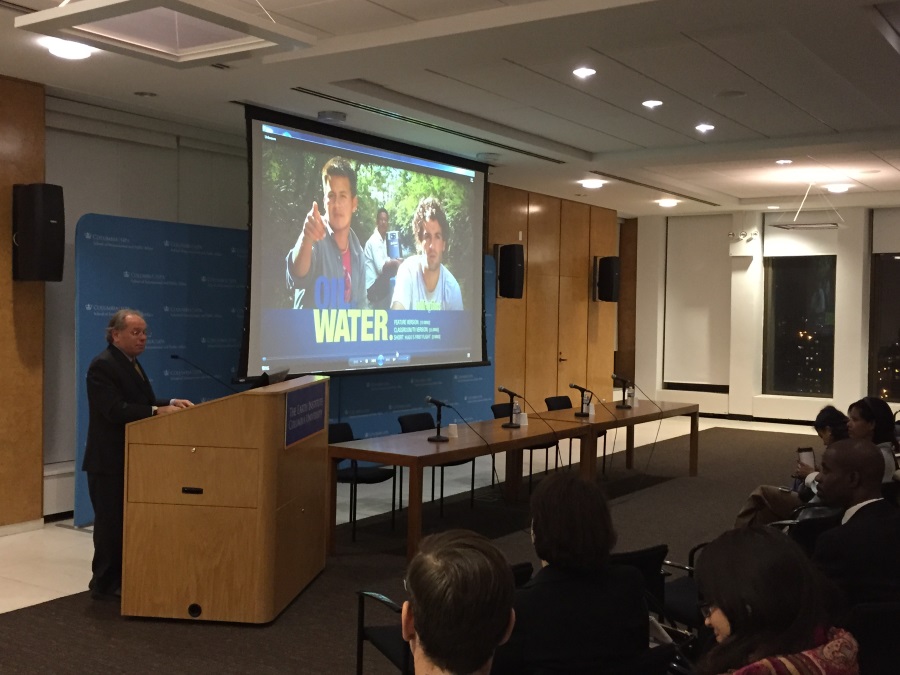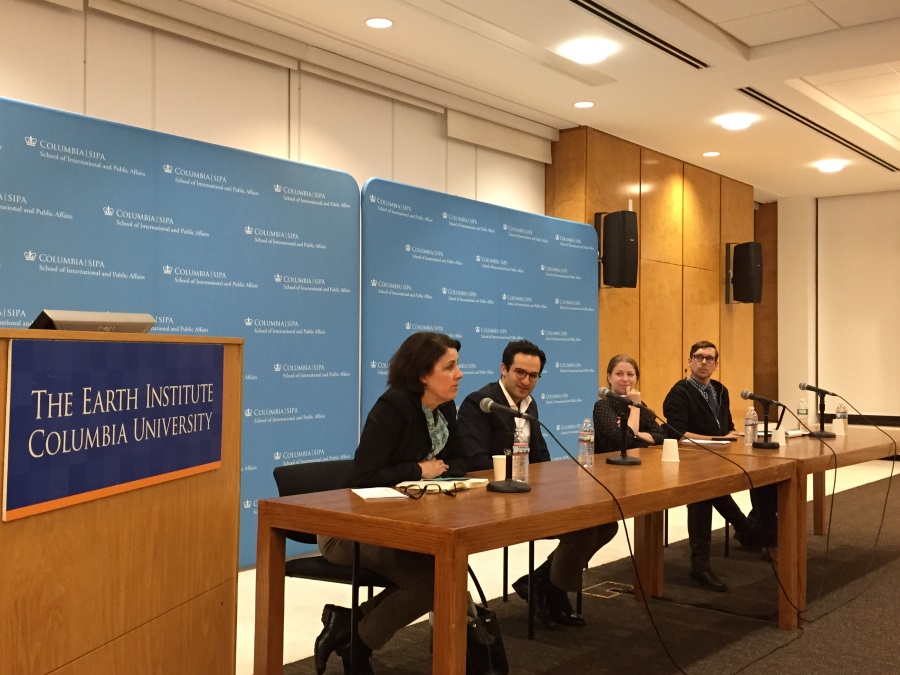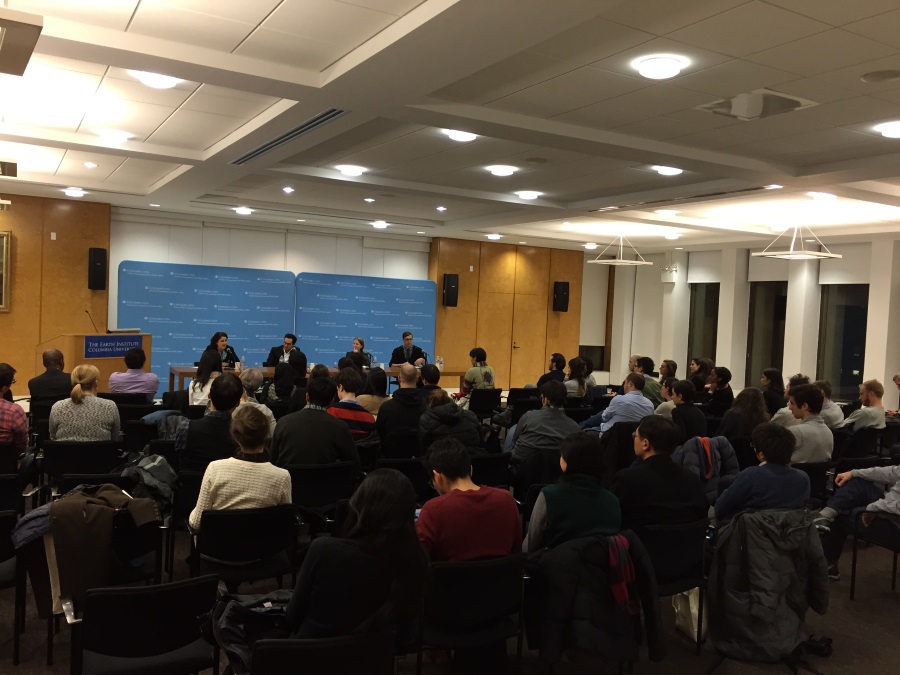
Executive Director Steve Cohen of Columbia University's Earth Institute welcomes attendees to Paying the True Price of Oil: Energy, Environment, Community, and Corporate Responsibility.
On March 4, Columbia University’s School of International and Public Affairs (SIPA) hosted EO and guests for a screening of “Oil & Water,” panel discussion, and Q&A session. The event, Paying the True Price of Oil: Energy Environment, Community, and Corporate Responsibility drew a large audience and sparked productive and eye-opening discussions of energy development impacts and approaches to mitigating them around the world.
Panelists included Josh Fisher, Director of the Advanced Consortium on Cooperation, Conflict and Complexity (AC4), Lisa Sachs of the Columbia Center on Sustainable development and David Poritz, the President and Co-founder of EO. Ellen Morris, Adjunct Professor and Founding Partner of Embark Energy and Sustainable Energy Solutions, moderated the discussion. Steve Cohen, Executive Director of Columbia’s Earth Institute, kicked off the event with an introduction that emphasized the importance of working toward responsible development practices even as the world transitions away from fossil fuels.
At the core of the discussion were the issues of community engagement, investment as a tool for leveraging better development practices, and the notion of leveling the playing field in negotiations between companies and citizens. Josh Fisher evoked constructive dialogue by suggesting that in order to reach equitable outcomes in bargaining between local communities and extractive companies, it is essential to establish Free, Prior and Informed Consent (FPIC) as well as social license(s) to operate. With regards to social impact investment, Lisa Sachs suggested that there are “lots of ‘ifs’ for investment to succeed at reducing [negative] impacts; but oil and gas is the sector with the biggest transformative potential.” Herein lies a thread at the heart of EO’s mission: informing investors about companies and sites that are harnessing that transformative potential. Sachs was keen to point out that social impact investors define sustainability to include “long-term holistic approach(s), that effectively manage impacts.”

Left to right: Ellen Morris, David Poritz, Lisa Sachs and Josh Fisher
In addition to investment as a lever to influence company behavior, Fisher noted that revenue and reputation are highly influential factors on internal decision-making processes within oil and gas companies. A company’s bottom line may be largely dependent on avoiding incidents that would harm the reputation of the brand. The panelists agreed that finding channels for stakeholders, particularly indigenous communities, to voice grievances is essential to securing respect for their socio-environmental and cultural interests. However, a space to voice concerns and requests, in and of itself, is not sufficient for a truly equal playing field in negotiating terms of oil and gas operations. Poritz stated that third party technical expertise, along with the proverbial tool kit that EO provides, would be essential as a supplementary component in equitable bargaining. Fisher agreed, and cited the limited capacities of indigenous communities in their ability to establish the “proper framework for granting concessions.”
As the discussion was coming to a close, the audience was invited to ask questions about the film and the comments of the panelists. Poritz was asked what keeps him up at night with regards to EO’s work. He responded that the slow pace of progress was a constant concern for him. However, Portiz was quick to add that he remains optimistic and that he continues to experience rewarding dialogue with industry leaders and incremental progress. Regarding the content of the film, Poritz was asked about what drew him to the issue at such a young age. His reply was that the image of black oil spread across areas of otherwise vibrant green jungle, which he witnessed as a young man, resonated with him and he has grown with the issue, keeping that vivid memory and determination to stop such destruction from happening again in mind.

Audience listens to panel discussion at Columbia University
Paying the True Price of Oil: Energy, Environment, Community, and Corporate Responsibility was sponsored by the Center for the Study of Ethnicity and Race, the Institute of Latin American Studies, and the Master of Public Administration program in Environmental Science and Policy.

